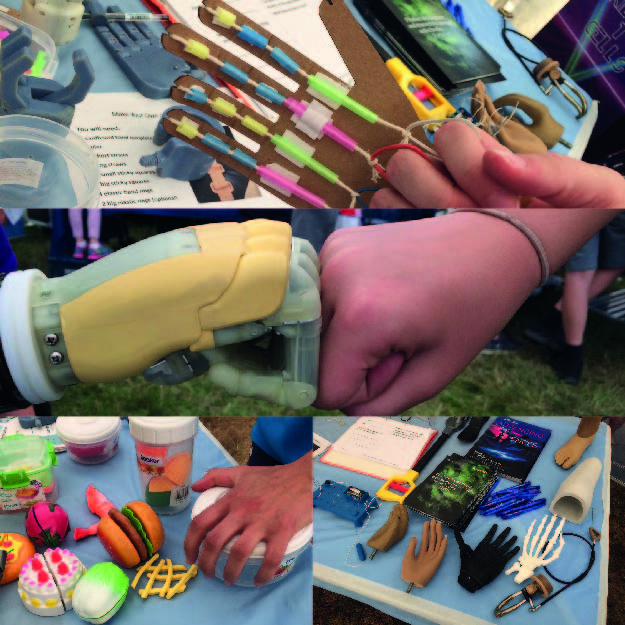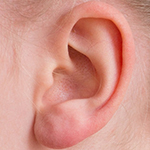 IMAGE COPYRIGHT photos taken by project team
IMAGE COPYRIGHT photos taken by project team People and Prosthetics
Have you ever thought what it would be like to do the things you do every day if you did not have two hands?
Would it be harder to do everyday activities, like preparing food and getting dressed?
Have you ever thought about the range of different people involved in developing prosthetic hands?
How can we design and fit prosthetic hands if we don't have this experience ourselves?
How can we learn from people with hand impairments so that we can develop a more inclusive world around us?
This interactive exhibit lets you try out some of the tools we use to understand the challenges in doing everyday activities with a hand impairment or absence. You can also meet the different types of health care professionals, engineers and health scientists who help develop and fit replacement hands and find out about the diverse jobs you could do to help people needing prosthetics.
Would it be harder to do everyday activities, like preparing food and getting dressed?
Have you ever thought about the range of different people involved in developing prosthetic hands?
How can we design and fit prosthetic hands if we don't have this experience ourselves?
How can we learn from people with hand impairments so that we can develop a more inclusive world around us?
This interactive exhibit lets you try out some of the tools we use to understand the challenges in doing everyday activities with a hand impairment or absence. You can also meet the different types of health care professionals, engineers and health scientists who help develop and fit replacement hands and find out about the diverse jobs you could do to help people needing prosthetics.
You may also like

The power of your ears
Curious how the world sounds to someone with hearing loss? Step into our sound booth for an ear-opening experience! You'll listen to sounds captured by special microphones on a ...Read More
Highfield Campus

Grow your own organoids
Do you want to learn how we grow organoids, or mini organs, in the lab, and what they are used for? Come and learn how to make organoids by 'growing your own'. You'll have the ...Read More
Highfield Campus
 - v2.jpg)
